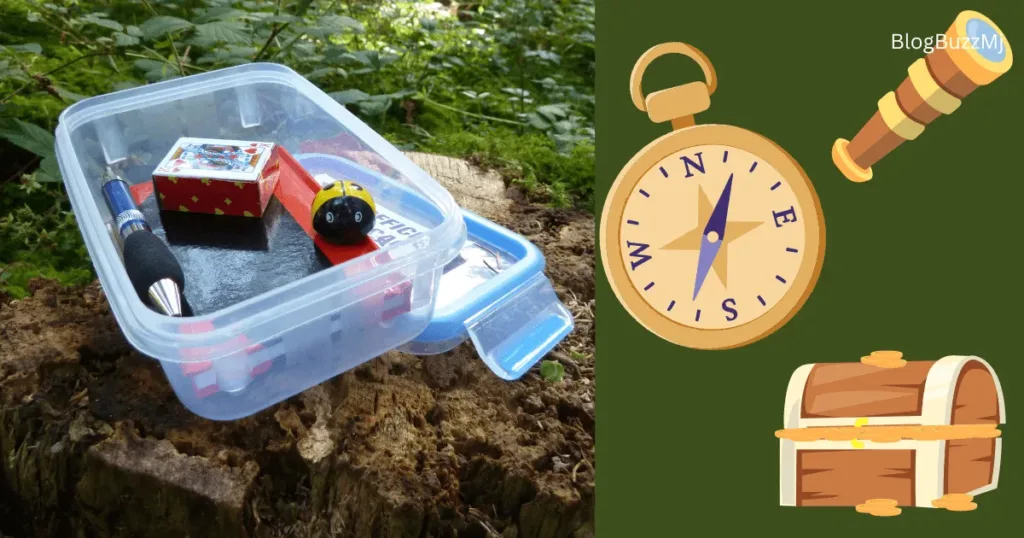Is Geocaching a good hobby? Unpacking the Benefits and Drawbacks of the Modern Treasure Hunt
Geocaching has gained popularity in recent years, with millions of participants worldwide. Is Geocaching a good hobby? In this article, we will unpack the benefits and drawbacks of geocaching to help you decide if geocaching is a good hobby for you.
What is Geocaching?
Geocaching is a popular hobby that involves using GPS-enabled devices to locate hidden containers, or “caches,” that have been placed by other geocachers in public spaces. Participants use coordinates and clues to search for caches, which can range in size from tiny trinkets to larger containers filled with small toys, stickers, or other items. The goal is to find the cache, sign the logbook, and possibly trade an item before returning the cache to its hiding spot for the next geocacher to find.

Geocaching is a fun activity that can be enjoyed by people of all ages and skill levels. It can be a great way to explore new places, discover hidden gems in your local area, or even while traveling to different countries. It can be enjoyed individually or as a group, and is popular worldwide, with millions of caches hidden in over 190 countries. Geocaching is not only a fun way to explore the outdoors, but it also provides a sense of adventure and satisfaction when successfully finding a cache.
Geocaching can be enjoyed for free, but some aspects of the hobby may require a paid membership or purchase of additional equipment. The basic geocaching app and website are free to use and provide access to millions of caches around the world. However, some premium features, such as access to advanced search filters and geocache statistics, require a paid membership to Get the free Official Geocaching app and join the world’s largest treasure hunt..
Examples of Geocaching
Here are some geocaching examples that illustrate how geocaching can be a fun and exciting activity for people of all ages and interests and helps in deciding Is Geocaching a good hobby?
Traditional Cache
A traditional cache is a container hidden at a specific location, and the coordinates of the cache are listed on a geocaching website. Participants use their GPS or smartphone to navigate to the location, search for the hidden cache, and sign the logbook inside. Traditional caches can be found in a variety of locations, from urban areas to remote wilderness areas.
Multi-Cache
A multi-cache involves following a series of clues or puzzles to find the final cache location. Each clue leads to the next location, and the final location contains the cache container. Multi-caches are a great way to explore a new area and can involve a variety of different types of puzzles and challenges.
Letterbox Hybrid
A letterbox hybrid cache combines elements of geocaching and letterboxing, another type of treasure-hunting activity. Participants follow clues to find a hidden container that contains a rubber stamp and logbook. They use the stamp to mark their personal logbook and leave a message in the letterbox logbook.
Event Cache
An event cache is a gathering of geocachers at a specific location and time. Events can range from a casual meet and greet to a more organized event with activities and games. Participants can meet other geocachers, share stories, and learn more about the hobby.
EarthCache
An EarthCache is a special type of geocache that teaches participants about geological features or processes at a specific location. Participants visit the location and answer questions about the geological feature or process, then log their visit online. EarthCaches are a great way to learn about science and the natural world while exploring new places.
Benefits of Geocaching
Outdoor Exercise and Exploration
Geocaching is a great way to get outdoors and explore new places while getting exercise. Many geocachers use the hobby as a way to discover new hiking trails, parks, and other natural areas. Geocaching can also be done in urban areas, making it a fun way to explore new cities and neighborhoods.
Improves Mental Health
Spending time in nature has been shown to have numerous mental health benefits, including reducing stress and anxiety and improving mood. Geocaching combines the benefits of being outdoors with the thrill of solving puzzles and finding hidden treasures, making it an engaging and mentally stimulating activity.
Socialization
Geocaching can be a social activity, allowing participants to meet other like-minded individuals who share their interests. Many geocachers join local groups or attend events where they can meet other enthusiasts and share stories and tips.
Teaches Navigation and Problem-Solving Skills
Geocaching requires participants to use GPS coordinates and clues to locate caches, which can be challenging and require problem-solving skills. This can help improve navigation skills and spatial awareness, as well as critical thinking and problem-solving abilities.
Inexpensive Hobby
Geocaching is a relatively inexpensive hobby, as it only requires a GPS-enabled device and possibly a small fee to access premium caches. There is no need to purchase expensive equipment or gear, making it accessible to people of all ages and backgrounds.
Drawbacks of Geocaching
Risk of Trespassing or Property Damage
Geocaching requires participants to search for caches in public spaces, which can sometimes lead to accidental trespassing or property damage. It’s important for geocachers to respect private property and obey all posted signs and restrictions.
Difficulty Finding Caches
Some caches can be difficult to find, requiring participants to spend a lot of time searching or even returning to the location multiple times. This can be frustrating for some participants, especially those who are new to the hobby.
Risk of Injury
Geocaching often involves hiking or exploring in unfamiliar areas, which can lead to the risk of injury. It’s important for participants to take precautions and be aware of their surroundings to avoid accidents.
Difficulty Maintaining Caches
Geocaching requires participants to maintain the caches they place, including replacing the logbook and checking for any damage or issues. This can be time-consuming and may require additional resources or equipment.
Addiction
Like any hobby or activity, geocaching can become addictive for some participants. This can lead to excessive time spent searching for caches or neglecting other responsibilities.
Is there ever Money in geocaching?
Geocaching is primarily a hobby and is not generally considered a way to make money. In fact, the ethos of the geocaching community is that caches should not be used to promote commercial interests or to generate revenue.
That said, there are a few ways that geocaching could potentially be monetized:
Advertising or sponsorships
Some geocaching websites or apps have generated revenue through advertising or sponsorships. For example, a geocaching app might include ads that are shown to users, or a website might feature sponsored content or links. However, it’s important to note that advertising or sponsorship could be seen as intrusive or disruptive to the geocaching experience, so it’s not a widely accepted practice in the community.
Selling geocaching-related products
There are a variety of products that are related to geocaching that people might be willing to buy. For example, some geocachers might be interested in purchasing customized containers or trackable tags, or they might want to buy books or other resources that provide tips for finding caches. However, it’s important to note that the market for geocaching-related products is likely to be relatively small, so it might be difficult to make a significant amount of money this way.
Offering geocaching-related services
Some people may be willing to pay for guided geocaching tours, or for help with finding particularly challenging caches. For example, a geocacher who is experienced in finding caches in a certain area might offer to take other people on a guided tour of that area for a fee. Similarly, someone who is particularly skilled at solving puzzles or deciphering clues might offer their services to help others find caches that they might not be able to find on their own.
However, it’s important to note that attempting to monetize geocaching in these ways could be seen as going against the spirit of the hobby, and could potentially be met with resistance from the geocaching community, and the decision about Is Geocaching a good hobby? should not be based solely on it.
Conclusion
Geocaching can be a fun and engaging hobby for individuals and families of all ages. It provides numerous benefits, including exercise, mental stimulation, and socialization, while also teaching important skills such as navigation and problem-solving. However, like any activity, there are also potential drawbacks to consider, such as the risk of property damage or injury, as well as the time and effort required to maintain caches. It’s important for geocachers to approach the hobby with respect and caution, while also enjoying the excitement and adventure that comes with the modern treasure hunt.
Ultimately, Is Geocaching a good hobby? for you will depend on your personal interests and preferences. If you enjoy spending time outdoors, solving puzzles, and exploring new places, geocaching may be the perfect hobby for you. However, if you prefer more structured or indoor activities, it may not be the best fit.
Regardless of your decision about “Is Geocaching a good hobby?”, it’s clear that geocaching has become a popular and beloved hobby for millions of people around the world, and its benefits and drawbacks are worth considering before embarking on your own treasure hunt.



